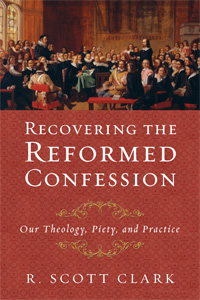From the weird to the wonderful.
American Christianity
Protestants More Loyal to Toothpaste Than to Their Denomination?
In USA Today (HT: Geneva Redux)
The Evangelical Abuse of Statistics
CT has published an interesting summary of research by Christian Smith. Some of the “facts” about American Christianity you think you know may not be facts at all.
Godfrey: Church or Club?
Bob Godfrey has an provocative essay on the Tabletalk site. Recommended reading.
HB Classic: Holograms, Gnosticism, Celebrity, and Mission
[Originally published March 6, 2010] In view of a recent post by Carl Trueman concerning virtual preachers now seems a good time to republish this HB classic. § Two jarring facts came to my attention in recent days. The first of these is . . . Continue reading →
Lamenting Decline or Questioning Premises and Methods
It started with John Frame’s “Warrior Children” piece in 2003. In June, 2012 Anthony Bradley wondered about the decline of popular presbyterians. More recently Bill Evans has elaborated on the theme of the decline of conservative presbyterianism. This morning I wake to . . . Continue reading →
Office Hours: The Great Disappointment, Graham Crackers, And American Religion
Nineteenth-Century American religion was wild and wooly. It began with an outbreak of Pentecostalism and concluded with the death of Dwight L. Moody and the beginning of the end of Old Princeton. In between saw the rise of Mormonism, the Second Great . . . Continue reading →
New From D. G. Hart: Damning Words: The Life And Religious Times Of H. L. Mencken
My copy arrived yesterday. Looking forward to it. The publisher (Eerdmans) says: “H. L. Mencken (1880-1956) was a reporter, literary critic, editor, author — and a famous American agnostic. From his role in the Scopes Trial to his advocacy of science and . . . Continue reading →
On Memorial Day: All Christians Are Historians
In the United States, Memorial Day is day for remembering those who died in the service of the US military. It began as Decoration Day in 1868, on which day 5,000 people decorated the graves of Union and Confederate soldiers at Arlington . . . Continue reading →
New Film: American Gospel
For far too many American and global Christians, the “prosperity gospel” is all they know of Christianity. For far too many Christians what the Scriptures actually teach about the law and the gospel is almost entirely unknown. Their leaders and influences are . . . Continue reading →
In Defense Of The Bible Belt
One can imagine fewer complaints from the South if her critics held everyone over the fiery pit like one of Edwards’s unfortunate spiders, and did so with equal contempt. But there seems to be a bit of socio-theological dissonance at play. On . . . Continue reading →
Hart Reviews Noll—America’s Book: The Rise And Decline Of A Bible Civilization, 1794–1911
Many Americans born after 1960 have trouble imagining that for much of the country’s history the Bible was a chief source of national identity. Older Hollywood directors sometimes get it right. Take “Liberty Heights” (1999), written and directed by Barry Levinson (born . . . Continue reading →
New Resource Page: On Mainline (Liberal) Christianity In North America
The expression “mainline church” is drawn from an old-money neighborhood in Philadelphia known as “the main line.” The mainline churches were what are sometimes called the “tall steeple” church along the mainline. Scholars of American Christianity sometimes speak of the “Seven Sisters . . . Continue reading →
BOLO (Be On The Lookout)
A former pastor of the nation’s largest Independent Fundamental Baptist congregation has been released from federal prison, records show. He had pleaded guilty to taking a 16-year-old across state lines for sex. Jack Schaap, 64, was released Wednesday from the federal prison . . . Continue reading →
The Fatal Mistake Of A Reasonless Christianity
It is worse than useless for Christians to talk about the importance of Christian morality, unless they are prepared to take their stand upon the fundamentals of Christian theology. It is a lie to say that dogma does not matter; it matters . . . Continue reading →






